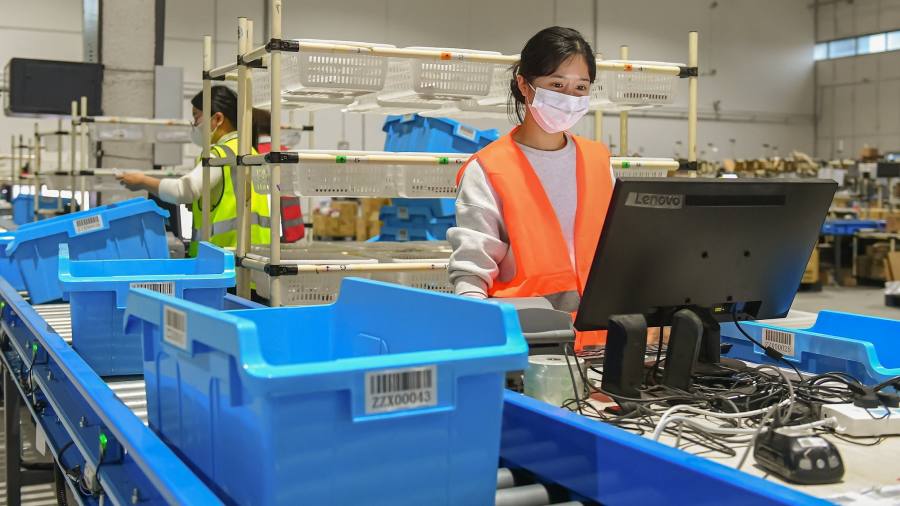Alibaba is planning to list its logistics and grocery businesses within the next 18 months and spin off its cloud division as the Chinese group commences a massive shake-up of its tech empire.
In its first financial results since the tech giant announced plans to split into six businesses, Alibaba kicked off the group’s break-up as it posted a single-digit rise in revenues during the first quarter.
The Chinese group on Thursday said revenues had risen 2 per cent in the three months to March to Rmb208bn ($30bn), compared with a year earlier.
Alibaba said the board had approved plans to execute an initial public offering for its Freshippo grocery business, expected to be completed within the next year. It is also seeking to list its Cainiao Smart Logistics in 12 to 18 months.
“We believe that these two companies are ready to go public,” said Daniel Zhang, the group’s chief executive, during an investor call.
Alibaba also revealed plans to completely spin off its struggling cloud business through a stock dividend to shareholders after completing a private fundraising round for the unit.
But the cloud computing arm’s recent struggles could dampen its valuation in private markets. In the first three months, the unit reported a 2 per cent fall in revenues year on year, the first quarterly sales decline on record.
“The cloud business is fundamentally different from other consumer-facing businesses. This will allow the cloud business to sharpen its business strategy and optimise operations,” said Zhang, adding that Alibaba intended for the business to become an independently listed company.
The announcements come less than two months after Alibaba revealed its plan to split into six business units in a radical break-up that comes after Beijing’s crackdown on China’s tech giants.
Alibaba on Thursday announced the six new chief executives and board members for the respective new entities.
Under the restructuring, the Alibaba holding group will retain full ownership of its domestic ecommerce businesses Tmall and Taobao, which generated more profits than the group as a whole in its last fiscal year.
Alibaba said businesses outside of domestic ecommerce will be “given a limited time period to access Alibaba group capital” before being cut off from the parent company financing.
Analysts have said that its lossmaking local consumer services unit, which includes its food delivery and Alibaba’s mapping app, may struggle to survive after being cut off from cash flow generated from the profitable ecommerce businesses.
Alibaba’s share price rallied following news of the split-up in March but has retreated close to pre-announcement levels amid investor concern over tepid spending on consumer goods and a slower than expected rebound in Chinese economic activity.
The group said net income was Rmb23.5bn in the first quarter, reversing losses during the same period last year due to one-off gains.
Revenue from its domestic ecommerce business was Rmb140bn, a decline of 3 per cent from the previous year.
Gross merchandise revenue on Tmall and Taobao decreased in mid-single digits as consumers shunned online shopping in favour of social-contact spending such as dining and visiting the cinema after China ended its zero-Covid policy late last year.
“In the past few months, we have noticed a gradual recovery in Chinese consumption, but consumer confidence and spending power still need further momentum,” said Zhang.
Goldman Sachs analysts said in a note to clients that Taobao and Tmall’s high-profit margins mean Alibaba will “have the buffer to step up investments to defend its market share” in ecommerce amid “intensifying competition”.
They added that China’s reopening could see a “plateauing” of the livestream shopping format popularised by ByteDance’s Douyin during the pandemic.
Alibaba said on Thursday it had tested a new interface for its Taobao app that aimed to increase exposure for its livestream shopping channels, in a direct challenge to Douyin.
The group said it had spent more than $1.9bn to repurchase 21.5mn shares during the three-month period, or about 1 per cent of its outstanding share count. The group has about $19.4bn left to utilise as part of a previously authorised buyback programme.
Additional reporting by Ryan McMorrow in Beijing


